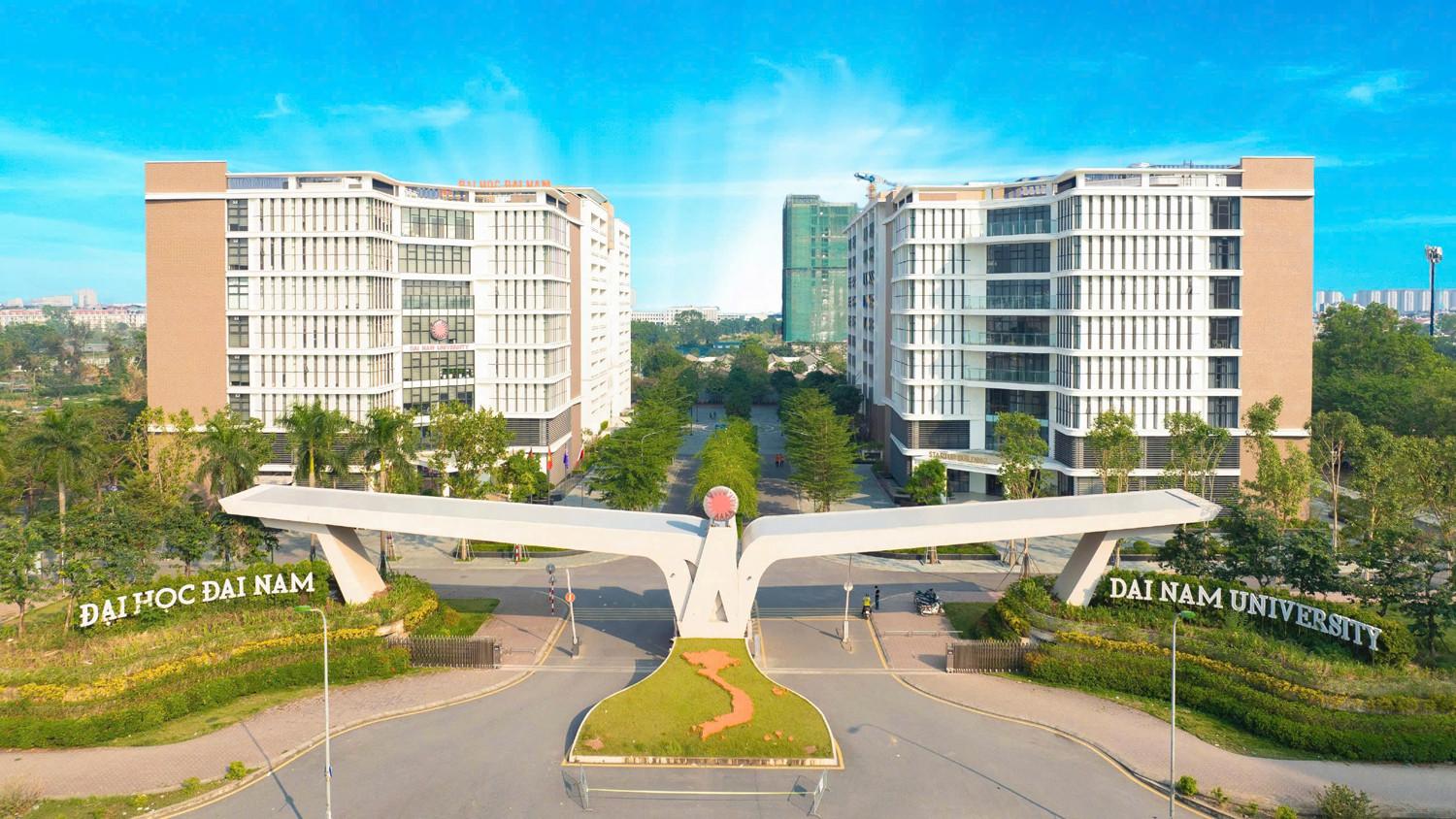Taxes and tax considerations for business students
Posted date 19/03/2018
4.995 view

Tax is a very familiar word, even more familiar to students majoring in economics. Almost all of us have heard of it, all of us have been propagandized to know that "paying taxes is the obligation and right of citizens", "paying taxes is for us to build and protect our country" or "Tax money belongs to the people, contributed by the people to serve the interests of the people" but do we really understand all about taxes surrounding the daily activities of life?
MSc. Vu Thi Mai Nhi
Lecturer, Faculty of Accounting
Tax is a very familiar word, even more familiar to students majoring in economics. Almost all of us have heard of it, all of us have been propagandized to know that "paying taxes is the obligation and right of citizens", "paying taxes is for us to build and protect our country" or "Tax money belongs to the people, contributed by the people to serve the interests of the people" but do we really understand all about taxes surrounding the daily activities of life? Do we really understand all the taxes we have to pay? Especially for students, it seems that few of you spend time to find out why we pay taxes, what tax money is used for? Not to mention whether you have ever paid taxes or not? What types of taxes? It is worse for students majoring in economics. The article below provides some of the most basic information about taxes so that we can see that taxes are really very close.
Lecturer, Faculty of Accounting
Tax is a very familiar word, even more familiar to students majoring in economics. Almost all of us have heard of it, all of us have been propagandized to know that "paying taxes is the obligation and right of citizens", "paying taxes is for us to build and protect our country" or "Tax money belongs to the people, contributed by the people to serve the interests of the people" but do we really understand all about taxes surrounding the daily activities of life? Do we really understand all the taxes we have to pay? Especially for students, it seems that few of you spend time to find out why we pay taxes, what tax money is used for? Not to mention whether you have ever paid taxes or not? What types of taxes? It is worse for students majoring in economics. The article below provides some of the most basic information about taxes so that we can see that taxes are really very close.
.png)
First, it is necessary to understand that " Tax is a part of income that organizations and individuals are obliged to pay to the State according to the Law , to meet the needs of performing the functions of the State ".
That is, only when we have income do we have to pay taxes. And if someone wishes to not pay taxes, then he wishes to have no income, which means he wishes to become dependent on others. But after all, who does not have to pay taxes? So the answer to the question: if anyone from birth to death does not consume any product, service, or commodity, then that person will not have to pay taxes. At that time, people will return to the period of "Eating feathers and living in caves" which history will never repeat. Therefore, those who wish to not pay taxes, instead of wishing not to pay taxes, let's hope to become useful people to society.
On the other hand, we need to understand that tax is a mandatory payment, we have no right to refuse to pay tax because it has been stipulated by law issued by the highest authority of the State. We wonder, is there anyone living in a civilized society who does not obey the law?
So what taxes will we have to pay?
Currently, the current tax system in Vietnam includes: Income tax, consumption tax and property tax.
That is, only when we have income do we have to pay taxes. And if someone wishes to not pay taxes, then he wishes to have no income, which means he wishes to become dependent on others. But after all, who does not have to pay taxes? So the answer to the question: if anyone from birth to death does not consume any product, service, or commodity, then that person will not have to pay taxes. At that time, people will return to the period of "Eating feathers and living in caves" which history will never repeat. Therefore, those who wish to not pay taxes, instead of wishing not to pay taxes, let's hope to become useful people to society.
On the other hand, we need to understand that tax is a mandatory payment, we have no right to refuse to pay tax because it has been stipulated by law issued by the highest authority of the State. We wonder, is there anyone living in a civilized society who does not obey the law?
So what taxes will we have to pay?
Currently, the current tax system in Vietnam includes: Income tax, consumption tax and property tax.
.png)
Each tax is made up of many different taxes. Each tax affects a different aspect of life.
You mistakenly think that value added tax (VAT) is only related to businesses? Actually, it is not, it is you - the final consumer who has to pay the tax. Every day, when you buy a shirt, buy a pack of cakes or drink a cup of coffee, you have to pay VAT at 0%.
Do you think Special Consumption Tax (SCT) is far away, it seems to be only for the rich? Not really, for every liter of gasoline you use you have to pay 1,380 VND for SCT (how many of us do not travel by motorbike), for every cigarette you smoke you have to pay 70% of SCT, ... we have not discussed those who can buy cars, the SCT they have to pay is many times larger.
You think, Personal Income Tax (PIT) must only be paid when income from salary and wages is greater than 9 million VND per month? But what if tomorrow you inherit a piece of land or tomorrow you win the special prize of 20 billion VND of a Vietlott lottery ticket? Surely you will also have to pay PIT to the State Budget.
Resource tax, sounds strange and irrelevant. But who among us does not use electricity, in Vietnam, electricity is mainly produced from hydropower (ie from water). And water is a natural resource and using natural resources requires paying resource tax. In the cities, who does not use clean water? Who has never drunk a bottle of Lavie? Who builds a house without using sand and cement?... Only those who do not use the above do not have to pay resource tax.
We like foreign goods? We think that the quality of foreign goods is better so their price is higher, but do we think that their price is higher because in addition to shipping costs, they are also subject to VAT, special consumption tax (if any) and import tax?
And there are many other aspects of life where we see taxes present.
However, the article is only presented for readers to see and understand that "Tax money belongs to the people, contributed by the people to serve the interests of the people", so that students have a different view of taxes and to know, they need to understand more about the issues that they have, are and will study.
References:
1. Tax Practice Textbook, Academy of Finance (Assoc. Prof. Dr. Nguyen Thi Lien, Assoc. Prof. Dr. Nguyen Van Hieu, 2010)
2. Tax and Tax Accounting - Ho Chi Minh City University of Economics
3. Tax Laws, Tax Administration Laws and current tax legal documents .
You mistakenly think that value added tax (VAT) is only related to businesses? Actually, it is not, it is you - the final consumer who has to pay the tax. Every day, when you buy a shirt, buy a pack of cakes or drink a cup of coffee, you have to pay VAT at 0%.
Do you think Special Consumption Tax (SCT) is far away, it seems to be only for the rich? Not really, for every liter of gasoline you use you have to pay 1,380 VND for SCT (how many of us do not travel by motorbike), for every cigarette you smoke you have to pay 70% of SCT, ... we have not discussed those who can buy cars, the SCT they have to pay is many times larger.
You think, Personal Income Tax (PIT) must only be paid when income from salary and wages is greater than 9 million VND per month? But what if tomorrow you inherit a piece of land or tomorrow you win the special prize of 20 billion VND of a Vietlott lottery ticket? Surely you will also have to pay PIT to the State Budget.
Resource tax, sounds strange and irrelevant. But who among us does not use electricity, in Vietnam, electricity is mainly produced from hydropower (ie from water). And water is a natural resource and using natural resources requires paying resource tax. In the cities, who does not use clean water? Who has never drunk a bottle of Lavie? Who builds a house without using sand and cement?... Only those who do not use the above do not have to pay resource tax.
We like foreign goods? We think that the quality of foreign goods is better so their price is higher, but do we think that their price is higher because in addition to shipping costs, they are also subject to VAT, special consumption tax (if any) and import tax?
And there are many other aspects of life where we see taxes present.
However, the article is only presented for readers to see and understand that "Tax money belongs to the people, contributed by the people to serve the interests of the people", so that students have a different view of taxes and to know, they need to understand more about the issues that they have, are and will study.
References:
1. Tax Practice Textbook, Academy of Finance (Assoc. Prof. Dr. Nguyen Thi Lien, Assoc. Prof. Dr. Nguyen Van Hieu, 2010)
2. Tax and Tax Accounting - Ho Chi Minh City University of Economics
3. Tax Laws, Tax Administration Laws and current tax legal documents .
Latest article
View all Posts
Related articles
See all related Articles
Register for admission consultation 2025
Dai Nam University offers admissions to
36 academic programs
across a diverse range of disciplines, including Healthcare, Engineering and Technology, Economics and Business, and Social Sciences and Humanities.
Register now to secure
scholarships and tuition support worth up to 55 billion VND
scholarships and tuition support worth up to 55 billion VND

Register now to secure
scholarships and tuition support worth up to 55 billion VND
scholarships and tuition support worth up to 55 billion VND









